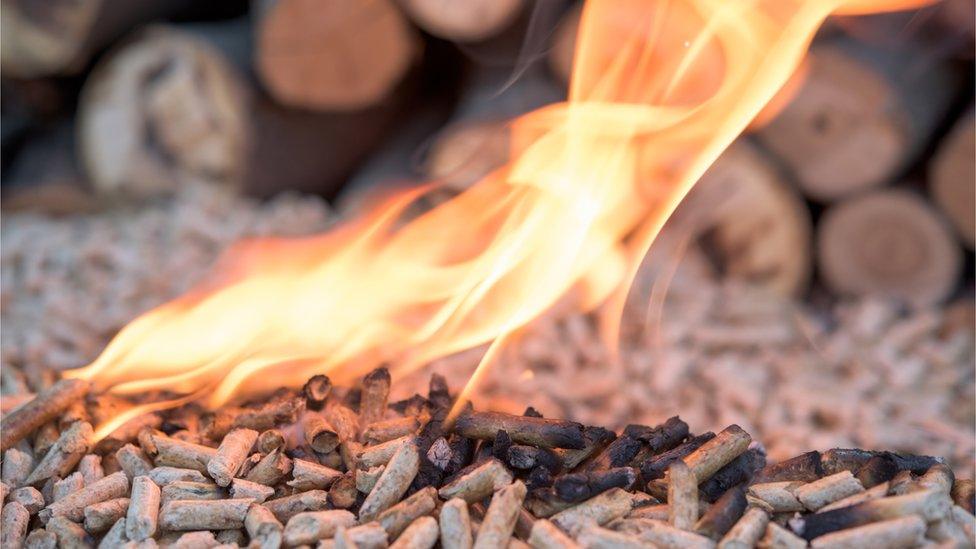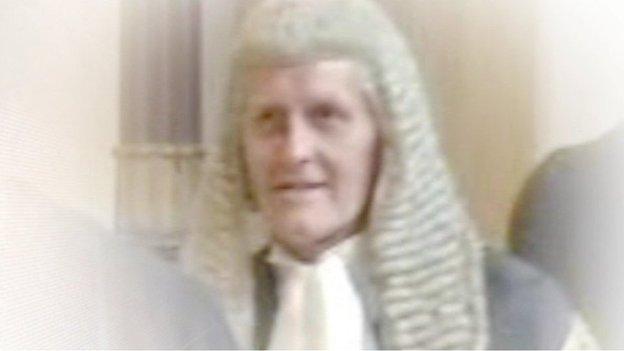RHI scheme firms 'folding' due to subsidy cut
- Published

The Renewable Heat Incentive scheme is approximately £490m over budget
A group which represents hundreds of Renewable Heat Incentive (RHI) boiler owners says some of its members are folding because of cuts to the payments they are receiving.
The Renewable Heat Association (RHANI) said it had reports of several firms shutting down.
It said they could no longer service the bank loans they had taken out to install the biomass boilers.
New tariff rates took effect from 1 April.
These new rates have substantially reduced the subsidy to be earned from the boilers.
The price controls run for one year, pending permanent measures to be agreed by the Northern Ireland Assembly.
RHANI said it had "already had reports of immediate redundancies and winding up of businesses from a number of members due to the financial uncertainty of changes to their tariff".
"Sectors including agriculture, which traditionally operates on a very low-profit margin are badly affected by the imposition of these changes.
"It appears that a number of businesses cannot now service the bank loans that they took out to buy the specialist biomass boilers required for this government promoted incentive scheme."
The Renewable Heat Association is to challenge the new tariff arrangements in a court case listed for June.
In a statement on Thursday, it said that it had been made aware of at least five companies who had advised "that they are at risk as a direct result of the implementation of the updated RHI tariffs".
It added that it "had been advised by a number of RHI participants" that they had received letters from the department dated for Thursday, 6 April, to notify them of the new tariffs.
"As more businesses become aware of the changes made by the department with no prior notice, we expect the number of companies facing hardship to increase significantly over the coming days," the RHANI added.
Background
The botched energy scheme was set up in 2012 when Arlene Foster was minister at the Department of Enterprise, Trade and Investment.
It was an attempt by the Northern Ireland Executive to help to increase the consumption of fuel from renewable sources.
However, businesses received more in subsidies than they paid for renewable fuel, and the scheme became oversubscribed.
The fallout from the scandal, which is approximately £490m over budget, resulted in the collapse of Stormont's institutions and the calling of snap elections on 2 March.
Retired appeal court judge Sir Patrick Coghlin is to chair a public inquiry into the scheme.
A judge ruled at the beginning of March that corporate companies receiving RHI subsidies could be named by the Department for the Economy.
- Published7 March 2017

- Published1 March 2017

- Published24 January 2017
